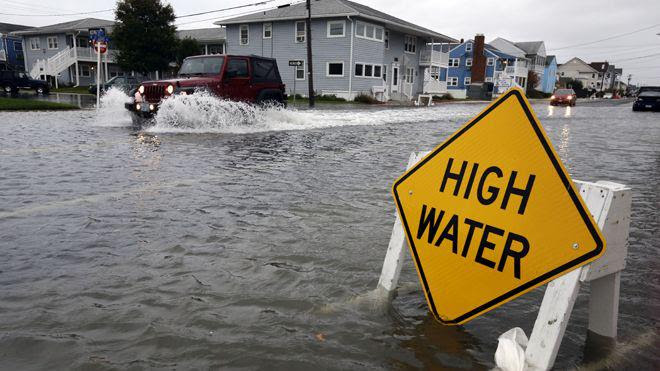Is Rising Sea Level an Environmental Issue?

Rising sea level will move the shoreline making it more than “just an environmental issue.”
Usually sea level rise is categorized as an “environmental issue.” More often than not, I dispute that saying it is more of an economic or real estate issue. To some degree it is a question of framing or positioning and even semantics, but it actually makes an important point — and expands the audience.
“Environmental Issues” and their advocates, environmentalists, are usually seen as a minority of the population. Sometimes called “tree huggers” or “Greens” in a political context. Not always, but often the implication is that those people put such matters on the same plane, or even above economics, business, and political reality — issues that many consider paramount in importance.
For example in meetings with at least three separate law firms, they wanted to put the issue of rising sea level as part of their environmental department. In almost all law firms that is a relatively small practice area, whose primary focus is on environmental laws, “remediation”, compliance, etc. I quickly explain that rising sea level is going to shift the shoreline, causing property to be flooded, permanently. That puts it squarely in departments ranging from real estate, finance, contracts, litigation, disclosure statements for public companies, bond issues, etc.
For countries, local government, businesses, and homeowners the ownership of land has special, even singular, importance. It is literally where we live, what defines legal territories, and is the foundation for a large part of the financial world.
As the ice melts at an accelerating pace in distant places like Greenland and Antarctica, sea level will rise faster and faster. We have passed a tipping point. The process has just begun, but shorelines all over the world will move inland. Also, with a higher sea level base, during major rainfall events, and extreme high tides — sometimes referred to as ‘king tides’ there will be more extensive short term flooding. But rising sea level is special because it will not go down for at least a thousand years, so it is essentially permanent.
Thinking of rising sea level as something that changes real estate boundaries, that will affect the collateral of financing, that could cause law suits for a wide variety of issues, and determine compliance with laws and regulators for publicly traded companies, banks, and insurance companies greatly expands the scope of who should start paying attention to this game-changing issue.
The point is that while sea level rise certainly is part of the important environmental scope of issues, one way to assert its unique status is to elevate it to being one of the most fundamental issues — those that will get the attention of investors, economists, and those involved in commerce and even politics. Everyone should care about environmental quality since it determines our health and quality of life. But by describing it as something even greater than environment we can expand the audience for those that treat such issues as secondary.
Another way to make the point about rising sea level being special is to suggest that we should not think about “owning” coastal assets since that suggests perpetuity — something to be kept on our list of assets “forever.” Due to rising sea level nearly all coastal assets now have a much more limited useful life, perhaps decades or even centuries, but no longer permanent. We might think of property within ten feet (3 meters) of sea level, as land that is “leased” from the ocean than owned outright. We just don’t know the term of the lease.
One reason for the uncertainty about the length of the virtual lease, is that sea level rise depends on ice melting on Greenland and Antarctica, which depends on what we do about energy policy and greenhouse gas emissions — a subject that is very much being debated, particularly in the United States under the new administration. While I stay clear of politics so that various groups will listen to my explanations, I did recently take issue with the new head of the Environmental Protections Agency – https://johnenglander.net/scott-pruitt-needs-pull-head-out-of-sand/
Finally I often get asked what we can do to slow or stop sea level rise. Though I have touched on that before, I plan to devote my blog post next week to that, tentatively titled: “It’s Time for the Next Manhattan Project.”
